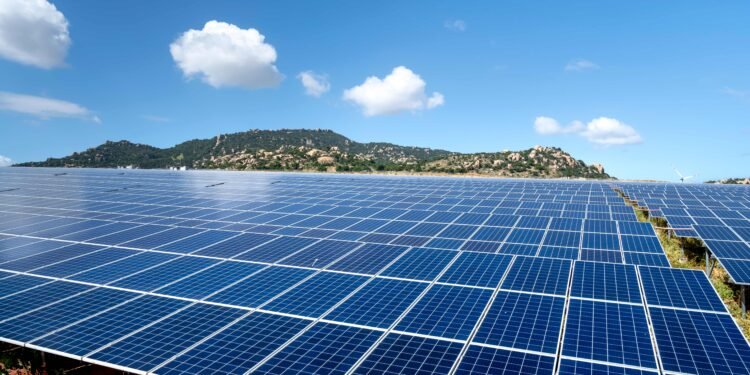ASMARA, Eritrea (BG) – The African Development Bank Group (AfDB) and Eritrea have signed a $19.5 million grant agreement to fund the Desert to Power Eritrea 12MW Mini Grid Project, the bank announced on Thursday.
The initiative aims to expand electricity access across the country by establishing mini-grids in three regions: Teseney (6MW), Kerekebet (3MW), and Barentu (3MW).
Eritrea’s Minister of Finance and National Development, Dr. Ghiorghish Teklemichae, who also serves as the Bank Group Governor for the country, signed the agreement on behalf of the government during a ceremony on March 10.
The AfDB’s Deputy Director General for East Africa, Dr. Léandre Bassole, represented the institution. The funding will come from the Bank Group’s Transitional Support Facility (TSF).
The project will be implemented by Eritrea’s Ministry of Energy, the Eritrea Electricity Corporation, and local companies, with oversight from a design and engineering technical consulting firm.
“Capacity building and knowledge transfer are critical to the success of the project’s implementation,” Bassole said. “This will be a continuous process.”
It is expected to improve energy access for more than 235,000 Eritreans, including residential households, small-scale farms, agro-processing zones, and water supply systems. More than 160 schools and 90 health centers in the Gash Barka region will also benefit.
To ensure sustainability, 25 local companies will receive training and equipment. “We are proud to say that Africa is working with Africa to bring change to Africa,” Minister Teklemichae said during the signing ceremony.
The initiative aligns with Eritrea’s 2018 National Energy Policy, which aims to increase electrification and ensure renewable energy contributes 20% of electric power by 2030.
It also supports the AfDB’s Interim Country Strategy Paper 2022-2024 for Eritrea, focusing on infrastructure development for economic growth.
Eritrea faces significant energy challenges, with less than half of its population having access to electricity, according to the International Energy Agency (IEA).
Most of the country’s electricity generation relies on imported oil, highlighting its dependence on external energy sources and the lack of domestic renewable energy infrastructure.




